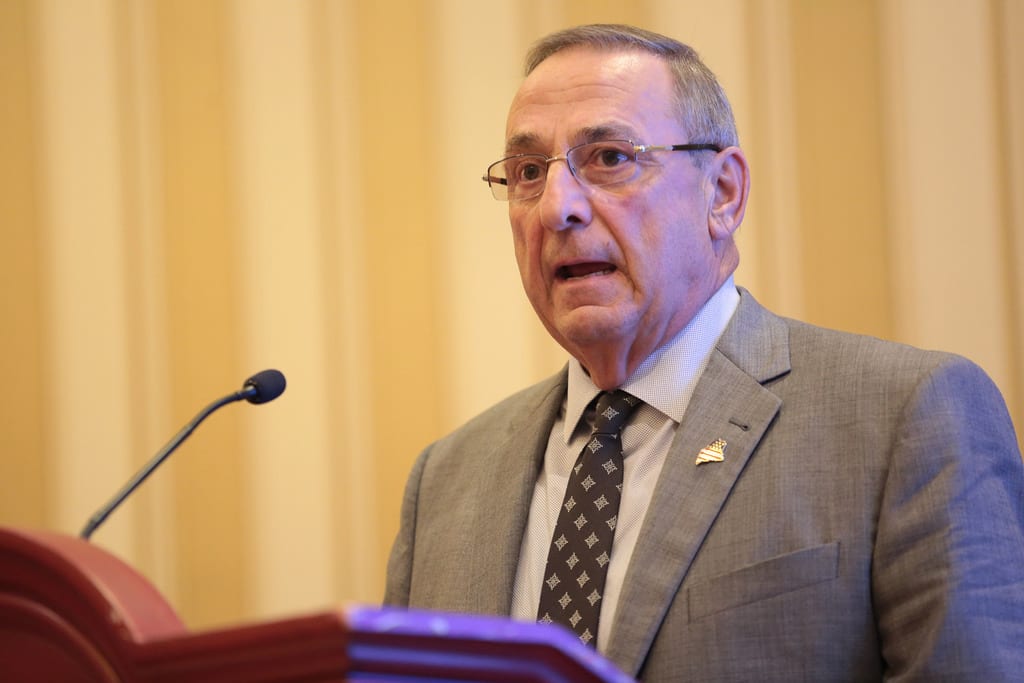LePage’s Broken Campaign Pledge Puts the Brakes on Maine’s Adult Use Market


By J.J. McCoy, Senior Managing Editor for New Frontier Data
At the start of this month, Maine Republican Governor Paul LePage vetoed the state’s pending bill to establish rules for implementation of an adult use cannabis program. In so doing, he ignored his own 2014 re-election campaign pledge, and subsequently introduced political and practical uncertainty into what has been estimated at an emerging industry potentially worth $325 million a year.
Maine already has one of the highest reported cannabis usage rates in the country, with a legal medical cannabis market in place since 1999. Voters last Election Day legalized adult use through a referendum, Question 1. A bill, LD 1650, devised over nine months of work by the Marijuana Legalization Implementation Committee to establish regulations and taxes for an adult use cannabis market, had passed with a two-thirds majority in the Senate, but failed in the House. Likewise, an attempt last Monday to override the veto failed to meet the 67% standard required by each body.
Though the state has allowed the use of medical cannabis for more than 15 years, LePage explained his rationale for reversal about adult use in a November 3 letter. In it, the governor outlined “several reasons for the veto, including legalization’s conflict with federal law, the bill’s failure to address compatibility issues with the existing medical marijuana program, the bill’s bifurcated regulatory structure and its unrealistic timelines.”
Though the legislature technically retains an opportunity to draft and pass another bill when they reconvene in January 2018, the lawmakers would be tight against deadline to get any program up and running by February as had been targeted.Failing that, frustrated advocates of the bill point out that the de facto gray market which is expected to fill the void for however long a regulated market is delayed will operate with unsafe practices impacting the environment, production shortcuts introducing tainted products and pesticides, and generally hazardous conditions at clandestine grow facilities.
Meanwhile, of course, economic rewards from a regulated market will also have to wait, and to some extent be forfeited.
As described in The Cannabis Industry Annual Report: 2017 Legal Marijuana Outlook:
“For a decade after medical legalization, patients relied on a home caregiver model for access to cannabis. Combined with home cultivation laws allowing up to 12 plants per household, the entrenched caregiver and home-grow market has served as a strong source of competition for the eight state-licensed medical cannabis dispensaries since they began operating in 2011, and will continue to serve as a substitute source of supply and natural hedge against high flower prices in both medical and adult use markets (when adult use sales begin in 2018). Over the next nine years, Maine’s total legal cannabis market is projected to grow at a compound annual rate (CAGR) of 26%, from $56 million in 2016 to an estimated $432 million by 2025.”
Now, if the delay drags Maine into 2019 before residents will be able to legally purchase cannabis for adult use – the market will open at least six months after nearby Massachusetts is due to have its own legal program in effect, along with a nationwide market up and running for its Canadian next-door neighbors. Meantime, Vermont (which had been expected to follow behind Maine’s program) now seems a likely bet to instead beat Mainers to market: Vermont’s bill H.511, a plan to legalize adult possession in July 2018, remains on its House calendar when lawmakers reconvene in Montpelier come January.


J.J. McCoy
J.J. McCoy is Senior Managing Editor for New Frontier Data. A former staff writer for The Washington Post, he is a career journalist having covered emerging technologies among industries including aviation, satellites, transportation, law enforcement, the Smart Grid and professional sports. He has reported from the White House, the U.S. Senate, three continents and counting.


